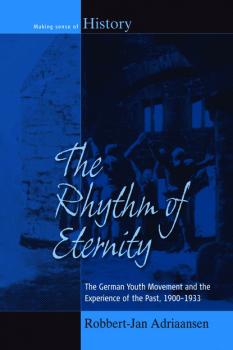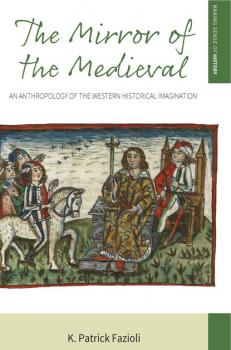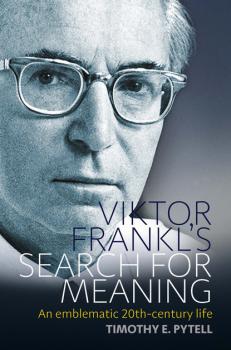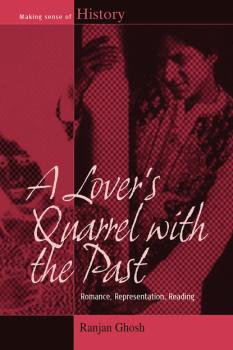Making Sense of History
Скачать книги из серии Making Sense of HistoryThe Rhythm of Eternity
The Weimar era in Germany is often characterized as a time of significant change. Such periods of rupture transform the way people envision the past, present, and future. This book traces the conceptions of time and history in the Germany of the early 20th century. By focusing on both the discourse and practices of the youth movement, the author shows how it reinterpreted and revived the past to overthrow the premises of modern historical thought. In so doing, this book provides insight into the social implications of the ideological de-historicization of the past.
The Ethos of History
At a time when rapidly evolving technologies, political turmoil, and the tensions inherent in multiculturalism and globalization are reshaping historical consciousness, what is the proper role for historians and their work? By way of an answer, the contributors to this volume offer up an illuminating collective meditation on the idea of ethos and its relevance for historical practice. These intellectually adventurous essays demonstrate how ethos—a term evoking a society’s “fundamental character” as well as an ethical appeal to knowledge and commitment—can serve as a conceptual lodestar for history today, not only as a narrative, but as a form of consciousness and an ethical-political orientation.
Contesting Deregulation
Few would dispute that many Western industrial democracies undertook extensive deregulation in the 1970s and 1980s. Yet this narrative, in its most familiar form, depends upon several historiographical assumptions that bely the complexities and pitfalls of studying the recent past. Across thirteen case studies, the contributors to this volume investigate this “deregulatory moment” from a variety of historical perspectives, including transnational, comparative, pan-European, and national approaches. Collectively, they challenge an interpretive framework that treats individual decades in isolation and ignores broader trends that extend to the end of the Second World War.
Cultural Borders of Europe
The cultural borders of Europe are today more visible than ever, and with them comes a sense of uncertainty with respect to liberal democratic traditions: whether treated as abstractions or concrete realities, cultural divisions challenge concepts of legitimacy and political representation as well as the legal bases for citizenship. Thus, an understanding of such borders and their consequences is of utmost importance for promoting the evolution of democracy. Cultural Borders of Europe provides a wide-ranging exploration of these lines of demarcation in a variety of regions and historical eras, providing essential insights into the state of European intercultural relations today.
The Mirror of the Medieval
Since its invention by Renaissance humanists, the myth of the “Middle Ages” has held a uniquely important place in the Western historical imagination. Whether envisioned as an era of lost simplicity or a barbaric nightmare, the medieval past has always served as a mirror for modernity. This book gives an eye-opening account of the ways various political and intellectual projects—from nationalism to the discipline of anthropology—have appropriated the Middle Ages for their own ends. Deploying an interdisciplinary toolkit, author K. Patrick Fazioli grounds his analysis in contemporary struggles over power and identity in the Eastern Alps, while also considering the broader implications for scholarly research and public memory.
Designing Worlds
From consumer products to architecture to advertising to digital technology, design is an undeniably global phenomenon. Yet despite their professed transnational perspective, historical studies of design have all too often succumbed to a bias toward Western, industrialized nations. This diverse but rigorously curated collection recalibrates our understanding of design history, reassessing regional and national cultures while situating them within an international context. Here, contributors from five continents offer nuanced studies that range from South Africa to the Czech Republic, all the while sensitive to the complexities of local variation and the role of nation-states in identity construction.
Viktor Frankl's Search for Meaning
First published in 1946, Viktor Frankl’s memoir Man’s Search for Meaning remains one of the most influential books of the last century, selling over ten million copies worldwide and having been embraced by successive generations of readers captivated by its author’s philosophical journey in the wake of the Holocaust. This long-overdue reappraisal examines Frankl’s life and intellectual evolution anew, from his early immersion in Freudian and Adlerian theory to his development of the “third Viennese school” amid the National Socialist domination of professional psychotherapy. It teases out the fascinating contradictions and ambiguities surrounding his years in Nazi Europe, including the experimental medical procedures he oversaw in occupied Austria and a stopover at the Auschwitz concentration camp far briefer than has commonly been assumed. Throughout, author Timothy Pytell gives a penetrating but fair-minded account of a man whose paradoxical embodiment of asceticism, celebrity, tradition, and self-reinvention drew together the complex strands of twentieth-century intellectual life.
Meaning and Representation in History
History has always been more than just the past. It involves a relationship between past and present, perceived, on the one hand, as a temporal chain of events and, on the other, symbolically as an interpretation that gives meaning to these events through varying cultural orientations, charging it with norms and values, hopes and fears. And it is memory that links the present to the past and therefore has to be seen as the most fundamental procedure of the human mind that constitutes history: memory and historical thinking are the door of the human mind to experience. At the same time, it transforms the past into a meaningful and sense bearing part of the present and beyond. It is these complex interrelationships that are the focus of the contributors to this volume, among them such distinguished scholars as Paul Ricoeur, Johan Galtung, Eberhard Lämmert, and James E. Young. Full of profound insights into human society pat and present it is a book that not only historians but also philosophers and social scientists should engage with.
The Holocaust and Historical Methodology
In the last two decades our empirical knowledge of the Holocaust has been vastly expanded. Yet this empirical blossoming has not been accompanied by much theoretical reflection on the historiography. This volume argues that reflection on the historical process of (re)constructing the past is as important for understanding the Holocaust—and, by extension, any past event—as is archival research. It aims to go beyond the dominant paradigm of political history and describe the emergence of methods now being used to reconstruct the past in the context of Holocaust historiography.
A Lover's Quarrel with the Past
Although not a professional historian, the author raises several issues pertinent to the state of history today. Qualifying the ‘non-historian’ as an ‘able’ interventionist in historical studies, the author explores the relationship between history and theory within the current epistemological configurations and refigurations. He asks how history transcends the obsessive ‘linguistic’ turn, which has been hegemonizing literary/discourse analysis, and focuses greater attention on historical experience and where history stands in relation to our understanding of ethics, religion and the current state of global politics that underlines the manipulation and abuse of history.









